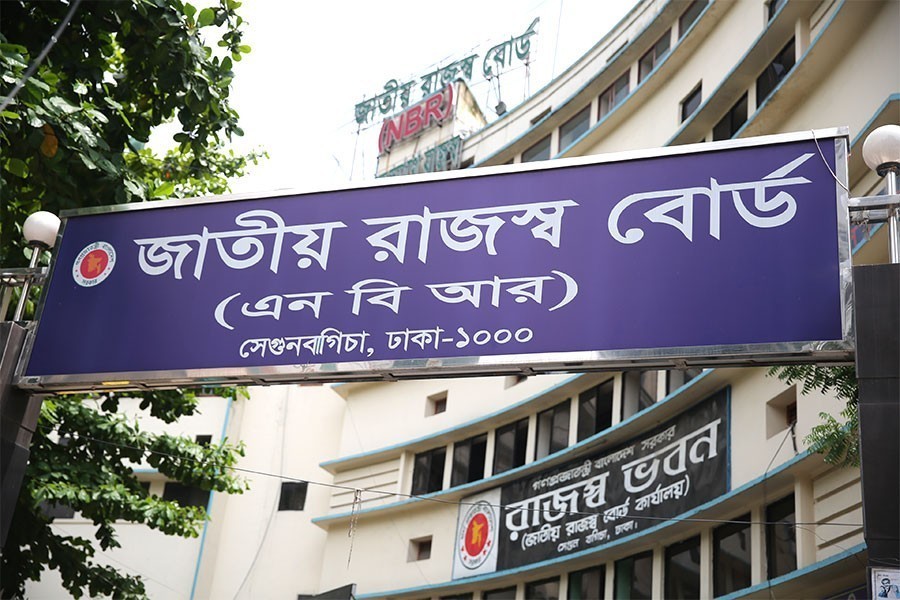
Published :
Updated :

The list concerning tax exemptions granted by the National Board of Revenue (NBR) has grown a bit longer in the first week of the current month. The Board has issued an order allowing the import of raw materials and reagents for the production of active pharmaceutical ingredients (API) or the basic drug by the country's pharmaceutical industries without paying the value added tax (VAT). The NBR's move has fulfilled a long-standing demand of the drug companies wanting to be involved in API production. However, the Board has decided to be watchful. It has attached a few conditions to the facility of VAT waiver that, according to the order, would remain effective until December 2025.
The conditions tagged by the NBR are aimed at ensuring productive use of the waiver facility through measures such as adding value to imported products, maintaining good manufacturing practices, raising the level of spending on research and development by drug companies. A few other conditions are also there to stop abuse of the facility that is found somewhat rampant in a good number of exemption cases. The revenue officials are opposed to exemptions since those curtail their ability to mobilize sufficient resources needed to bankroll the national budget. Multilateral lenders are also not in favour of large-scale tax exemptions.
That is why the NBR granted the VAT waiver for a period shorter than what was suggested by the Ministry of Commerce (MoC) in the newly formulated 'National Active Pharmaceutical Ingredients and Reagents Production and Export Policy. The MoC wanted the waiver to continue until 2032, a year before the expiry of the extended period of TRIPS (Trade-Related Aspects of Intellectual Property Rights) for pharmaceutical products. There is no denying that $3.0 billion local pharmaceutical industry having a year-on-year growth at an average rate of 8.0 per cent does deserve fiscal incentives to reduce its huge dependence on imported APIs and reagents and expand its export market.
What, however, will be an essential job for the NBR and the regulatory bodies in the health sector is to ensure the use of VAT waiver facility for increasing the production of APIs and reagents by the local pharmaceutical companies. The greater production of these items locally would also lead to production of medicines at reduced cost, a development that is supposed to benefit the poor and low income people.
Bangladesh is the only least developed country (LDC) that is blessed with a very strong pharmaceuticals production base. The waiver granted with regard to patents and the exclusive marketing rights under the TRIPS have offered a huge opportunity to the local pharmaceutical industry to flourish and become competitive in the global market.
Sadly enough, the drug manufacturers have not utilized the opportunity to any notable level during the period since the adoption of the Doha Declaration on the TRIPS and Public Health in 2001. A sort of lack of urgency is noticed in the attitude of both local drug companies and relevant government agencies. The operation of the API Park is a case in point. Years have gone by, but the progress in making the Park operational has not been satisfactory.
Until now seven to eight pharmaceutical companies are producing APIs in factories established in different locations. Policymakers are hopeful that fiscal incentives are likely to woo more and more companies to API manufacturing and create a sort of urgency among them. That will be a positive development towards making the domestic pharmaceutical industry strong and competitive in terms of global export market. But any abuse of the fiscal facility offered to API and reagent producers will be unacceptable. Besides, all concerned will have to ensure that the benefit of reduced cost of production of medicines reach the poor.


 For all latest news, follow The Financial Express Google News channel.
For all latest news, follow The Financial Express Google News channel.